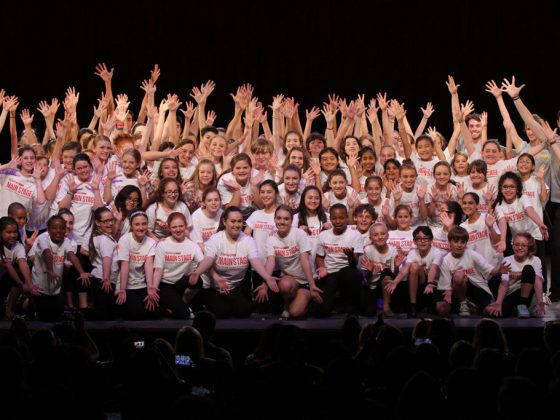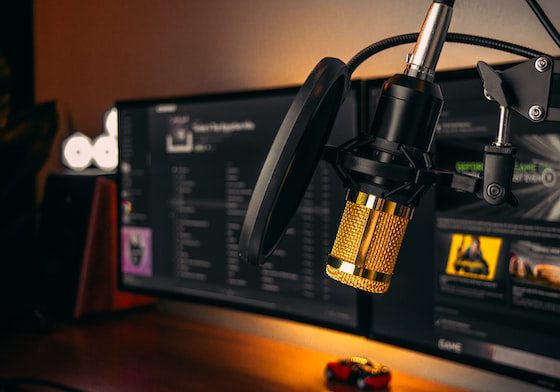Have you been told that you have the voice for radio? A voice over career can start at any age, and with so many different projects requiring a voice over artist, there is an abundance of work! From cartoons to commercials, if you’ve been thinking about getting into voice over, this is where to start.
TYPES OF VOICE ACTING
Within the world of voice overs, there are many different categories of work. Explore all the different categories and see what stream of voice acting you might want to focus on!
Audiobooks
Having gained popularity in the past few years, audiobook recordings often employ voice over artists to portray different characters in the novel to enhance the listener’s experience. Many times, books are recorded with the author as the narrator, but voice over artists can be hired to act as the narrator as well.
Animation
One of the most common forms of voice over work is animation. From children’s cartoons to anime, voice actors are tasked with bringing these colorful and characterful animations to life.
Commercial
The other most common form of voice over work is commercials. From radio to TV, almost every commercial you find will have a voice over artists involved. Voice over artists are tasked with effectively selling a product in a short space of time.
Documentary
Documentary is one of the longer form voice over jobs. These types of jobs require expert timing, pronunciation, and a flair for the dramatics. Think of how Sir David Attenborough or Morgan Freeman enhance a documentary with their commanding vocals!
Educational
Educational voice over can cover a broad spectrum of topics. This could include doing a voice over for companies wanting internal videos to train new staff members, or providing voice over for e-learning courses at educational institutions.
Video Game
Video game voice overs can be some of the most fun voice over jobs! They are high energy and often quite physically demanding for the voice. There are a range of video games that require voice over artists, and each require their own style of voice acting. In action-packed games, the voice over artists may be required to produce many sound effects such as grunts, screams, and catch-phrases. In an RPG (role-playing game), it may be more focused on dialogue between characters and creating different characterization for many characters.
HONE YOUR CRAFT
While no formal training is required for voice over work, there are many techniques to learn to become a successful voice over artist. Since a voice over artist is never seen, it’s important to build all the characterization into the voice and be able to communicate a range of emotions from speech alone. Many voice over artists will work with an acting coach and a voice coach to work on their speech quality, range of expression, and to build special skills such as accents/dialects and character voices.
Just like a professional athlete warms up their body, a professional voice over artist warms up their voice. Part of being a voice over artist means keeping your voice in the best shape possible; iIt’s important to create a warm up that you can use before every audition or job that will put your voice in peak condition for recording. If you’re looking for a place to start, try out these vocal warm up exercises below.
While not necessary, having an array of characterful voices and the ability to change your vocal qualities to suit a project is an incredible asset. Once you get your hands on a script, it’s important to figure out who your audience is and what voice/vocal qualities will resonate best with them. When creating character voices, the fun comes from playing around with your vocal range and vocal qualities! However, when deciding on character voices, make sure that the vocal choices are sustainable. Any character voices you create should be able to be reproduced frequently with ease, and be able to maintain speaking in the character voice for at least an hour.
While on the topic of vocal health, it’s paramount to keep your voice healthy while working on voice over scripts. Lots of scripts will require you to alter your voice in some way; whether that means pitching your voice at a range that is lower/higher than your usual speaking voice, or creating an entirely new way of speaking for a character. Always prioritize your vocal health when recording, especially during long sessions. Drink lots of water and take breaks when needed!
Another skill to focus on is timing. Most commercial voice over scripts are either 15, 30, or 45 seconds in length. It’s important that you can clearly speak all of the lines within these time limits and match the timing of any background music. There are hundreds of free commercial scripts online; choose a script, create a timer, and record yourself to see if you can deliver the script in 15, 30, and 45 seconds. See how the length of time changes your delivery!

EQUIPMENT CHECKLIST
While it’s not a requirement to have an at-home studio, it can be an incredible asset for voice over artists at any stage in their career. A lot of voice over work happens from home and with a few pieces of equipment, you can create a workspace quite easily!
Stay tuned for our next blog post on how to set up an at-home voice over studio!
Even if you’re not planning on turning your home into a working studio, having a quiet area to work on scripts, practice your technique, and record auditions is important. Many voice over auditions will require you to submit a sample of the script, so investing in a quality professional-grade microphone is a must-do. Becoming familiar with recording software is also a must. Whether you choose a free program like Audacity or spend some coin on ProTools, being able to record, edit, and send material quickly will make all the difference when you’re trying to plow through auditions.
BUILDING YOUR REEL
A voice over demo reel is the #1 item needed when getting started as a voice over artist. The reel should showcase your vocal talents, and will be used to submit to a variety of jobs. If you’ve already had success with voice over, you should include clips of jobs you have completed. If you haven’t had any jobs yet, no worries! Search for voice over scripts online and there will be hundreds to choose from. The reel should be between 55-75 seconds, with each clip lasting no longer than 15-30 seconds. Depending on the areas of voice over that you’re looking to work in, you may need more than one reel. The standard demo reel for voice over actors will contain material for a commercial reel. However, if you’re looking to get into animation, the selection of materials you would use on a commercial voice over reel are different from those for a video game reel. For more advice on reels, check out this video from voice over coach Joan Baker!
THE JOB HUNT
Now that you feel ready to take on voice over jobs, how do you get them?! Online casting platforms such as Backstage, Spotlight, and Mandy all contain job postings for voice over work. There are other freelance platforms such as Fiverr and Upwork where you can look for jobs (although those usually require an at-home studio).
Although you can find a steady stream of auditions on your own, many voice over artists opt for having an agent. There are agents that only focus on voice over, and those that will work in other areas such as film/tv and theater. There’s pros and cons to both, so it’s up to the artist to decide what kind of an agent they prefer.
Just like any other area of the arts, industry networking is also critical for making advancements in your career. This could be through masterclasses, workshops, or conferences with other voice over industry members. Keep making connections and meeting fellow artists!
While a job in voice over can be a dream, it takes a lot of perseverance and tenacity. Give yourself time to find the signature qualities of your voice and discover what niche in the market you can fill. Once you’ve recorded a reel of materials that you’re proud of, throw yourself into auditioning and have fun!














